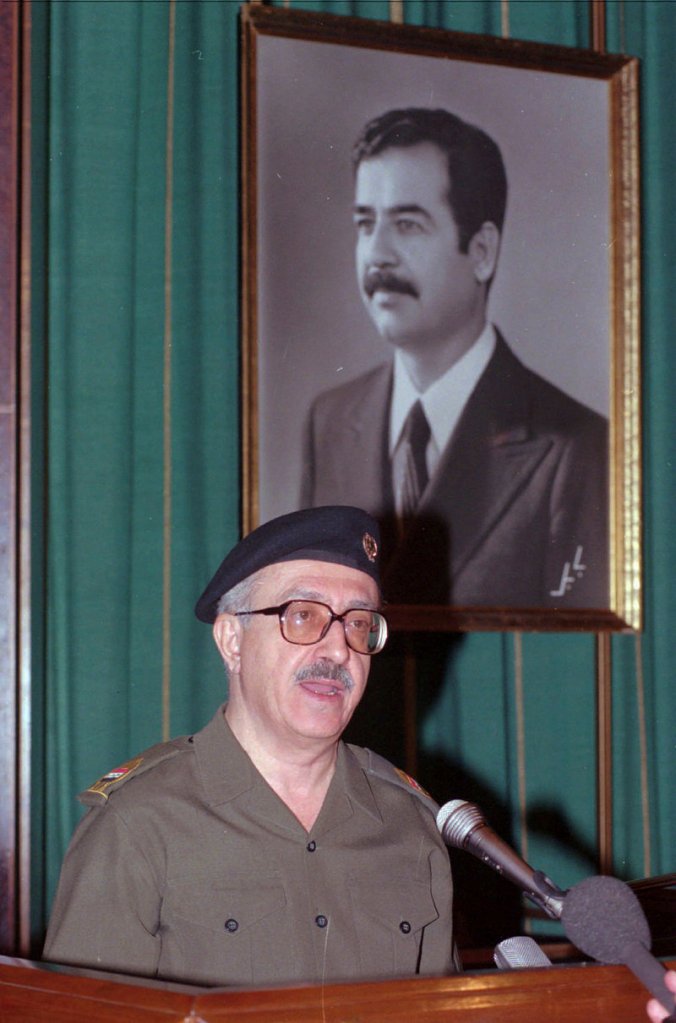BAGHDAD — Tariq Aziz, the dapper diplomat and highest-ranking Christian in Saddam Hussein’s regime, was sentenced Tuesday to death by hanging for persecuting members of the Shiite religious parties that now dominate the country.
The decision to execute the 74-year-old Aziz, who has suffered a series of strokes in prison, shows the depth of hatred among the country’s current Shiite leadership for top figures in a Baathist regime that sent hundreds of thousands of opponents to death or exile.
Among Shiites in the vast, eastern Baghdad slum called Sadr City, a gallows death for one of Saddam’s ardent aides was considered a fitting end.
“This is a fair judicial court ruling against those whose hands are still bloodied,” said Kamil Jassim, a 32-year-old teacher.
Many Sunnis, the minority Muslim sect that dominated Iraq under Saddam, questioned whether the death sentence was merely revenge masquerading as justice.
“The aim of this court, formed by this government, is to kill and liquidate all of the former regime’s senior figures if they committed crimes or not. It is an unfair trial and unfair verdict,” said Jameel Sahib Ali, a 50-year-old merchant in Saddam’s hometown of Tikrit.
Aziz was wearing a blue suit and his trademark oversized glasses as he sat alone in court. He frequently grasped the handrail that surrounds the defendant’s box and bowed his head as the judge read out the verdict.
Tuesday’s proceedings, broadcast on state TV, came nearly 20 years after Aziz’s meeting in Geneva with U.S. Secretary of State James A. Baker failed to prevent the 1991 Gulf War. Aziz also met with Pope John Paul II at the Vatican weeks before the March 2003 U.S.-led invasion in a bid to head off that conflict.
The Vatican spokesman, the Rev. Federico Lombardi, said the Vatican would lobby Iraq to halt the execution. He said commuting the sentence would encourage reconciliation and the rebuilding of peace and justice in Iraq.
No date has been set for the hanging, and Aziz’s lawyer has 30 days to appeal the sentence handed down by a court responsible for prosecuting crimes committed by the former regime. The verdict came two months after Aziz was transferred from U.S. to Iraqi custody.
Aziz’s lawyers accused the government of orchestrating the verdict to divert attention from recent revelations about prisoner abuse by Iraqi security forces contained in U.S. military documents released last week by the whistle-blower site WikiLeaks.
Send questions/comments to the editors.



Success. Please wait for the page to reload. If the page does not reload within 5 seconds, please refresh the page.
Enter your email and password to access comments.
Hi, to comment on stories you must . This profile is in addition to your subscription and website login.
Already have a commenting profile? .
Invalid username/password.
Please check your email to confirm and complete your registration.
Only subscribers are eligible to post comments. Please subscribe or login first for digital access. Here’s why.
Use the form below to reset your password. When you've submitted your account email, we will send an email with a reset code.